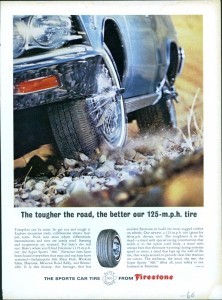The United Steelworkers (USW) today updated the White House on this year’s sharp spike of “accelerating” Chinese tire imports.
According to preliminary government data for August, there’s been an extraordinary increase of passenger and light truck tire imports into the U.S. of 57% when compared to this year’s first four months leading up to the April petition filing by the USW, which that sought relief under Section 421 of the Trade Act of 1974.
The U.S. International Trade Commission (USITC) said in late June that tariffs should be implemented on the 46 million tires imported annually from China because of the harm done to the U.S. industry.
If the Obama Administration bows to Chinese lobbying pressure, made all the more potent since China is our largest holder of U.S. government debt, then it will disappoint organized labor, which helped propel it into office.
More is at stake here than just rubber worker jobs. The U.S. — without a senior level ministry to look after job creation as part of a larger industrial policy — is alone among all other large trading nations.
“We fear that the ITC’s recommended relief will be inadequate for this huge spike of imports, and that September will be even worse,” said USW President Leo Gerard. Ever since the ITC’s June finding of market disruption, we have watched with alarm as the Chinese have cranked up their exports of tires to beat the date any remedy is applied.”
Section 421 is a safeguard that China agreed to as part of its bilateral trade negotiations with the United States leading to China’s 2001 membership in the World Trade Organization.
Gerard testified last month that China tire imports had swelled in July to more than 42% over the same period from January to April.
Gerard said today, “This is yet another attempt to defeat the beneficial effects of a trade remedy designed to address the market disruption and harm already caused by these imports. The current imports spike from China will hurt U.S. workers further if not addressed in the President’s remedy decision.”
The USW has asked the Administration to make certain that the remedy put in place fully offsets the current effort by Chinese producers and exporters to “beat the clock.”
The trade commission’s proposed tariff remedy of 55% tariffs in the first year, 45% in the second year and 35% in the third year was based on the job losses inflicted on the domestic industry during 2004-08.
The President can accept, reject or modify the recommendation of the ITC and his top trade advisors.
In light of the recent efforts by the Chinese to unload as many of its tires as possible, ahead of a possible remedy, the USW is urging the president for a higher level in the first year.
The Office of the U.S. Trade Representative (USTR) submitted its recommendations last week to the White House on the level of relief for the domestic tire industry workers that resulted from a finding that Chinese-made tires are disrupting the U.S. industry and costing thousands of American workers their jobs.
The White House, currently enmeshed in controversies about the rising unemployment rate, now at a 26 year high, as well as how it will proceed on health care reform, has until September 17th to act, according to U.S. law.
It could choose to do nothing.
On June 18th the ITC ruled that a market disruption exists, and it is harming U.S. industry. Simply put, without getting into a meaningless legal definition debate, we interpret this as saying China is dumping tires illegally in the U.S. under international trading rules.
The ITC investigation was prompted by a complaint from the United Steel, Paper and Forestry, Rubber, Manufacturing, Energy, Allied Industrial and Service Workers International Union (USW). The USW complaint asking for tariff relief was filed under Word Trade Organization rules that China has agreed to be governed by as it was given access to the U.S. market.
The USW filed a petition with the ITC in April that sought relief under Section 421 of the Trade Act of 1974. Section 421 is a temporary, country-specific safeguard that China agreed to as part of its bilateral trade negotiations with the United States leading to China’s 2001 membership in the World Trade Organization.

